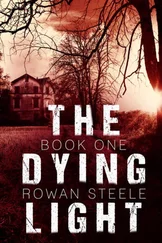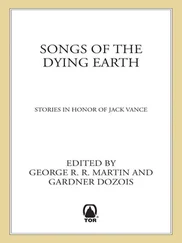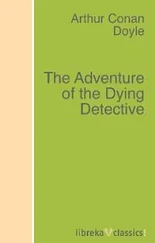Maureen JENNINGS - Except the Dying
Здесь есть возможность читать онлайн «Maureen JENNINGS - Except the Dying» весь текст электронной книги совершенно бесплатно (целиком полную версию без сокращений). В некоторых случаях можно слушать аудио, скачать через торрент в формате fb2 и присутствует краткое содержание. Город: Toronto, Год выпуска: 1997, ISBN: 1997, Издательство: McClelland & Stewart, Жанр: Полицейский детектив, на английском языке. Описание произведения, (предисловие) а так же отзывы посетителей доступны на портале библиотеки ЛибКат.
- Название:Except the Dying
- Автор:
- Издательство:McClelland & Stewart
- Жанр:
- Год:1997
- Город:Toronto
- ISBN:9780771043208
- Рейтинг книги:5 / 5. Голосов: 1
-
Избранное:Добавить в избранное
- Отзывы:
-
Ваша оценка:
- 100
- 1
- 2
- 3
- 4
- 5
Except the Dying: краткое содержание, описание и аннотация
Предлагаем к чтению аннотацию, описание, краткое содержание или предисловие (зависит от того, что написал сам автор книги «Except the Dying»). Если вы не нашли необходимую информацию о книге — напишите в комментариях, мы постараемся отыскать её.
Except the Dying — читать онлайн бесплатно полную книгу (весь текст) целиком
Ниже представлен текст книги, разбитый по страницам. Система сохранения места последней прочитанной страницы, позволяет с удобством читать онлайн бесплатно книгу «Except the Dying», без необходимости каждый раз заново искать на чём Вы остановились. Поставьте закладку, и сможете в любой момент перейти на страницу, на которой закончили чтение.
Интервал:
Закладка:
“Bring the body … morgue postmortem examination … too cold here … Get a report…”
Murdoch didn’t make out what he said. “Beg pardon, sir.”
Johnson pulled the muffler away from his mouth, then winced as the cold air hit his tooth. There was a waft of oil of cloves in the air. “I’ll get an examination done at once and send you the report.”
He quickly wrapped himself up again and started back towards his carriage, muttering something else undecipherable. Crabtree gave him a lift up into the seat, and he slapped the reins at the docile bay mare, which trotted off briskly.
Murdoch replaced the blanket. He’d never encountered a situation like this before, and although he’d felt pity for the dead girl he was also keenly aware that it might prove to be a noteworthy case. The notion was agitating. Promotion was difficult to come by in the city’s police force. The last few years had been hard economically for the city and the council had refused Chief Grasett’s request for a bigger budget. The police force could not expand. Murdoch had been acting detective for three years and unless somebody above him in rank died or retired he was stuck there. Lately he had fretted beneath that yoke, hating the need to kow-tow to men he despised. There was a chance the dead girl could bring him some glory if he handled himself well.
The constable in charge of the ambulance called out. “D’you think you’ll be much longer, Mr. Murdoch? It’s perishing cold for the horses.”
“Put their blankets on, then.”
Richmond was a chronic complainer and lazy to boot. Murdoch had no time for him.
Grumbling, the constable got down from his seat, took two blankets from the back of the wagon and threw them over the horses. Their breath smoked in the cold air. The snow continued to drift down and bits of ice were crusting on Murdoch’s moustache from the moisture of his breath. He was grateful for the warmth of his long sealskin coat and forage hat, which he’d acquired in exchange for three plugs of Jolly Tar from a dying prisoner. The nap was gone under the arms of the coat, but it wasn’t obvious and his landlady had managed to remove most of the stains.
He motioned Constable Crabtree to come closer.
“We’d better find out who she was. Take down some notes, will you?”
Crabtree took out a black notebook and inserted a piece of carbonized paper between two pages. He was a giant of a man, made taller by his high round helmet and wider by the serge cape. His broad, ruddy face was guileless as a farmer’s, but he was shrewd and Murdoch liked and respected him.
“Righto, sir.”
“The body is that of a young female between fourteen and sixteen years of age. She has light blue eyes, dark brown wavy hair. She is approximately five foot three inches, and would weigh about nine stone. There is a small wen to the right side of the nose. No scars or pockmarks. She is wearing silver ear hoops. Got that? Before the postmortem examination we’ll get some photographs just to be on the safe side. Cavendish is the best for that, and Foster can do the drawing in case we need it for the papers. When the rigor has passed we’ll take proper Bertillon measurements.”
Crabtree was surprised. “Is it worth it, sir? You said you don’t think she’s a slag.”
“We might as well. You know how the chief feels.”
Chief Constable Grasett was very keen on Bertillonage, and he’d sent all the detectives and acting detectives on a special course the year before. In fact, Murdoch thought the laborious system had its faults, but it was better than nothing, and there were reports, probably exaggerated, of some resounding successes. Murdoch had heard that the American police were experimenting with a method of identification using fingerprints, but so far the Toronto police had no knowledge of it.
He called to Richmond. “Bring over the stretcher.”
The constable pulled it out of the wagon and placed it on the ground beside the body. Crabtree went to help him. As they began to lift, the blanket slipped and the forearm and hand appeared, pointing toward heaven as if in supplication. The other man tried to get it covered over again. Murdoch snapped at him.
“Take care with that arm, you’ll break it.”
Richmond swore under his breath but finally managed to slide the girl over. Crabtree seized the lower handles of the stretcher and the two of them carried it into the ambulance. The driver jumped up on the front seat, clucked to the horses and set off down the lane. There was a burst of excited chatter from the watchers. At the same time a carillon of bells sounded from St. Paul’s Church, signalling the Mass. Murdoch sighed to himself. He was a Roman Catholic, but last Sunday he’d stayed in bed reading, and it looked like he’d miss this week too. Father Fair wouldn’t be happy; nor would Mrs. Kitchen, his devout landlady.
As Crabtree joined him, Murdoch pointed to the depression where the body had lain.
“Before she was moved, she was lying on her left side facing the fence. Her head was west towards Sackville, feet easterly towards Sumach Street. Her legs were drawn up close to her body and her arms were folded against her chest.”
He stepped aside and dropped to the ground, curling himself into the position the girl had been in when she died.
“What does it look like, Crabtree?”
“Like she might have tried to get a bit of protection from the wind here where the shed juts out.”
“That’s what I thought.”
Murdoch clambered to his feet and brushed the snow from his coat.
“Was she hickey?” asked the constable.
“Don’t think so. There was no smell of liquor. We’ll have to wait for the postmortem examination to be sure. But something was wrong. I don’t like the look of it at all. As far as I know, you don’t die naturally and have pinpoint pupils. And she was bruised. Could be from somebody gripping her arm hard. If this is a crime we have to be careful. I don’t want his nibs using my stampers for boot cleaners, if we’ve missed something. At the very least we’re dealing with desecration of a dead body. Back east they used to say, when you’re not sure which way the wind is going to blow, keep your deck clean, your sail up and your Man Thomas down.”
Crabtree grinned.
Murdoch took out a retractable tape measure from his inner pocket.
The snow of the last few hours had been steadily filling up any dints, and the coming and going of the constables overlaid whatever prints had been there previously. However, at the edge of the depression where the girl had lain, he saw one clear toe print. It was narrow and pointed, as from a fashionable boot. He measured it carefully.
“Let’s have a gander down the lane.”
“Are we looking for anything in particular, sir?”
“Fresh droppings of any kind. Nothing’d last more than two days in this place, so we don’t have to worry whether it’s new or not.”
The dirt lane ran parallel to Shuter Street from River Street as far as Yonge. Over at that westerly end within sight of the cathedrals, Shuter was respectable and well tended, most of the residents professional men. You could find more doctors per square inch on Shuter and adjoining Mutual Street than bugs on a pauper’s pillow. Here, though, the houses shrivelled in size and demeanour, taken over by working-class families who were too tired or too indifferent to maintain them. Not even the covering of snow could prettify the narrow-faced, drab houses and untended backyards where the outhouses sat.
Slowly the two officers walked down the lane on each side, but there was nothing out of the ordinary that they could see. At the Sumach Street end they halted, and the people jostling against the rope barricade stared at them. One woman had her child with her, clinging sleepily to her chest underneath her shawl. There was the usual sour odour from clothes that were never washed or removed.
Читать дальшеИнтервал:
Закладка:
Похожие книги на «Except the Dying»
Представляем Вашему вниманию похожие книги на «Except the Dying» списком для выбора. Мы отобрали схожую по названию и смыслу литературу в надежде предоставить читателям больше вариантов отыскать новые, интересные, ещё непрочитанные произведения.
Обсуждение, отзывы о книге «Except the Dying» и просто собственные мнения читателей. Оставьте ваши комментарии, напишите, что Вы думаете о произведении, его смысле или главных героях. Укажите что конкретно понравилось, а что нет, и почему Вы так считаете.










